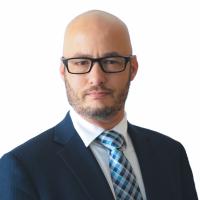
40 Years Later: Former 'Son of Sam' Killer's Journey to Redemption
It's been 40 years since serial killer David Berkowitz, infamously known as "Son of Sam," was convicted. In August of 1977, he pleaded guilty to a series of New York-based murders.
Berkowitz faced a host of misfortunes throughout his early life. Adopted just days after his birth, he struggled with depression, anger, and rebellion. His adoptive parents took him to numerous counselors and psychiatrists but no progress was observed.
Later, when he was a teenager, he lost his mother to cancer. She was one of few who he felt extra close to throughout his youth. The impact of her death only amplified the pre-existing pain Berkowitz dealt with.
He pursued a new start to life by joining the Army. However, after completing his obligatory service honorably, his anger and depression still haunted him.
Berkowitz' anger and feelings of rejection manifested as violent thoughts towards young women, given their profile of his rejection. His attacks were targeted towards young couples, ultimately killing six people in total.
He identified himself as the "Son of Sam" in his taunting letters to law enforcement. He would later explain that the name "Sam" comes from a former neighbor named Sam who owned a dog named Harvey. Berkowitz claims that the dog was a host to a demon who ordered the slayings.
On August 10, 1977 Berkowitz was convicted of six counts of first-degree murder, earning him six sentences of 25 years to life.
'Son of Sam' Becomes 'Son of Hope'
According to Berkowitz' ministry website, he surrendered his life to Christ in 1987. This conversion was prompted by the reading of , which reads, "This poor man cried, and the Lord heard him, and saved him from all his troubles." Following his conversion he dropped the name "Son of Sam" and adopted the name "Son of Hope."
"I told (God) that I was sick and tired of doing evil," he recalled. "I asked Jesus to forgive me for all my sins. I spent a good while on my knees praying to Him. When I got up it felt as if a very heavy but invisible chain that had been around me for so many years was broken."
"A peace flooded over me," he continued. "I did not understand what was happening, but in my heart I just know that my life, somehow, was going to be different."
Since then he has been active in prison ministry, counseling wayward inmates, assisting prison chaplains, and writing memoirs for Christian websites.
Under New York law, Berkowitz is allowed to plea for parole every two years. However, out of respect for his victims' parents he chooses to stay in prison.
"In all honesty, I believe that I deserve to be in prison for the rest of my life. I have, with God's help, long ago come to terms with my situation and I have accepted my punishment," explained Berkowitz.
Berkowitz' own website renders an invitation to all who visit it to come to know the Lord:
"Friend, here is your chance to get things right with God," the invitation reads. "The Bible says, 'If you confess with your mouth that Jesus Christ is Lord, and if you believe in your heart that God has raised Him from the dead, you shall be saved. For with the heart mankind believes unto righteousness, and with the mouth confession of salvation is made' ( ). So believe in your heart that these words from the Bible are true."




